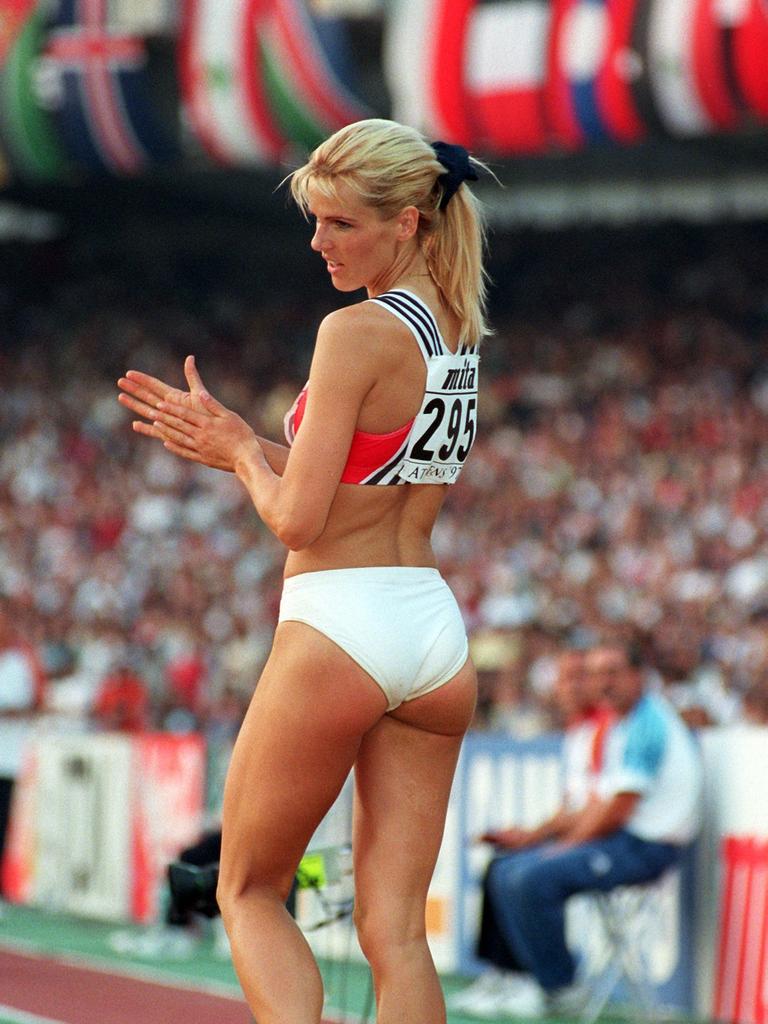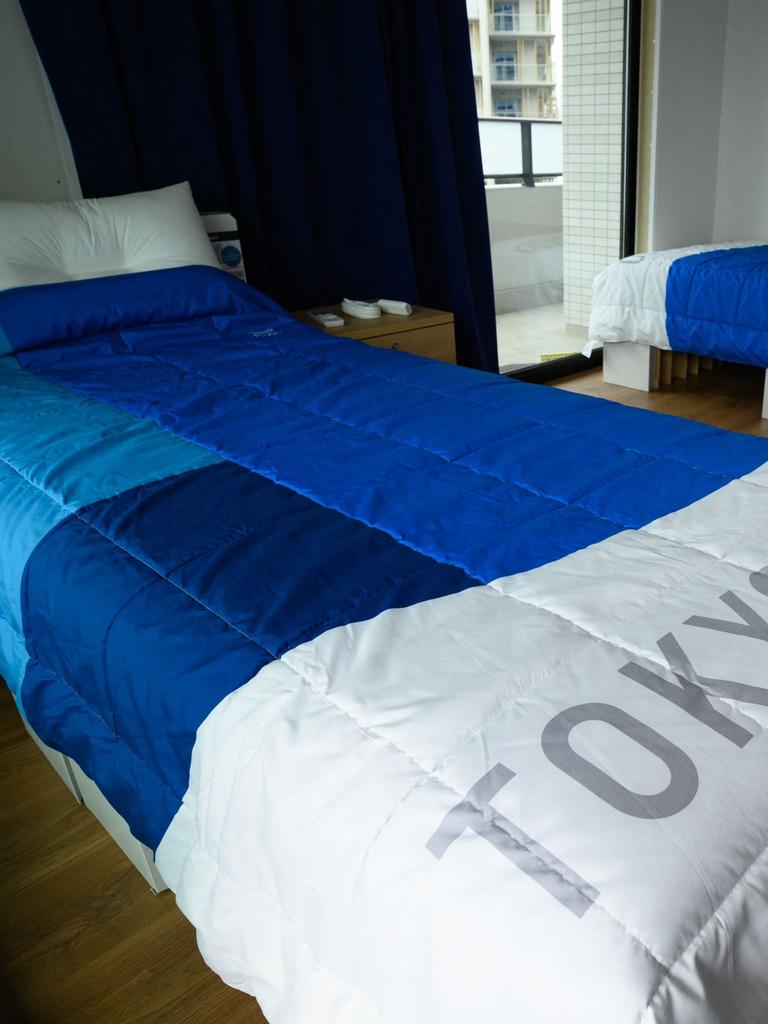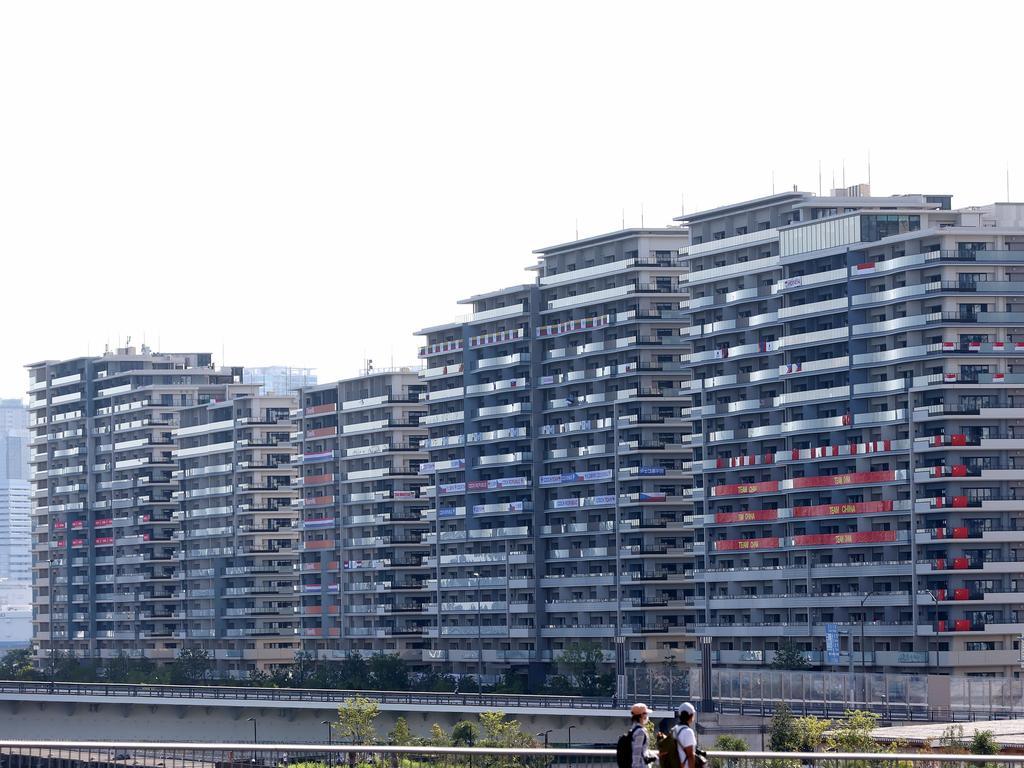Secrets of crazed Olympic Village sex
The “anti-sex” push at the Tokyo Olympics is being openly laughed at with one athlete spilling the beans on what is really going on.
Former Olympian Susen Tiedtke is spilling the tea about sex in the Olympic Village.
After athletes were provided cardboard beds in Tokyo, leading many to wrongly suggest Olympic organisers did so to prevent sexual activity amid the COVID-19 pandemic, Tiedtke explained that sex in the village is inevitable no matter what.
It hasn’t helped that Tokyo Olympics officials have handed out 160,000 condoms to competitors - but have done so with a message that the condoms are a symbol that athletes should abstain from sex until they return home following their events.
“The sex ban is a big laughing stock for me, it doesn’t work at all,” Tiedtke told Germany’s Bild, noting that “sex is always an issue in the village.”
Olympic officials later indicated the beds were in place because of their sustainability and sturdiness.
A video of Irish gymnast Rhys McClenaghan last week jumping on his bed inside the village helped debunk the myth that the beds were “anti-sex”.
“Anti-sex†beds at the Olympics pic.twitter.com/2jnFm6mKcB
— Rhys Mcclenaghan (@McClenaghanRhys) July 18, 2021
The former long jumper, 52, competed in the 1992 and 2000 Olympics — where she met her ex-husband Joe Greene, a fellow long jumper, during the Barcelona Games.
“The athletes are at their physical peak at the Olympics. When the competition is over, they want to release their energy,” Tiedtke explained.


During her Olympic runs, Tiedtke claimed, coaches said sex before competing wasn’t a good idea because “when you have sex, the body first has to recharge itself energetically.”
But once an athlete was done competing, Tiedtke said, many had sex, sometimes into the early hours of the morning.
“After the competition, however, roommates were considerate if you needed the room for yourself.
Tiedtke admitted: “You always heard the ‘party’ of the others, sometimes you could hardly sleep.”
“There is one party after another, then alcohol comes into play. It happens that people have sex and there are enough people who strive for that.”
It’s something Olympic organisers have learned to plan for.

Sex has long been its own event at the Games, with condoms becoming a hot commodity in Olympic villages since they were first given out in Seoul in 1988. In 2016, Rio organisers handed out a whopping 450,000 rubbers to the ready-and-raring athletes. In Tokyo, plans involved doling out 160,000 prophylactic sheaths to over 11,000 sportspersons — though they weren’t supposed to be given out until after the Games are over, due to the local state of emergency.
Instead, organisers were hoping the condoms would be taken home and used to raise awareness of HIV and AIDS.
While they may make for unique souvenirs from the 2020 Olympics, the lack of free condoms — nor the cardboard beds — are unlikely to keep competitors from going for the gold off the field of play.
“There’s a lot of sex going on,” two-time gold medal-winning American soccer goalie Hope Solo told ESPN in 2012. “I’ve seen people having sex right out in the open. On the grass, between buildings, people are getting down and dirty.”



